Index relies entirely on the support of donors and readers to do its work.
Help us keep amplifying censored voices today.
[vc_row][vc_column][vc_video link=”https://youtu.be/M6Amr_zAgpc”][vc_column_text]Team 29 is an informal human rights association of lawyers and journalists that defends those targeted by the state for exercising their right to freedom of speech.
Run by prominent human rights lawyer Ivan Pavlov, Team 29 is based in St Petersburg and named after Article 29 of the Russian Constitution on freedom of expression.
“We use court cases not only as an opportunity to restore justice within a specific case, but also as an excuse to attract public attention to the problems of freedom of information in Russia,” said Team 29.
By taking up high profile human rights cases, and writing and disseminating information about them, Team 29 has found a way around some of the restrictions imposed on campaigners.
The legal part of the Team conducts about 50 court cases annually. These are cases of high treason and the disclosure of state secrets of journalists and citizens whose right to freedom of speech is infringed, the refusal of the state to share information, and cases of extremism.
This year, the journalist section of the team set up a website to report on legal cases, explain the background to policies which threaten free speech, give advice, and explain what is happening to human rights in Russia and the different and myriad ways it is under attack.
It is the successor organisation to the Freedom of Information Foundation (FIF), which existed between 2004 and 2014, but which was shut down by the Russian government after it was included in the state register of “foreign agent” non-governmental organisations (NGOs).
The very right of civil society organisations to exist has been cast into doubt in Russia over the past few years and ever tightening restrictions placed on public protest and political dissent, making the work of Team 29 of increasingly vital importance as the space for free expression shrinks in the country. Most human rights organisations based in Russia have been closed down and it is very difficult to campaign.
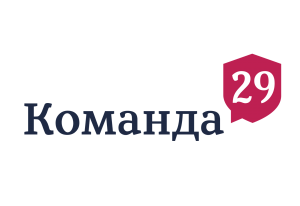 Last year, Team 29 lawyers took on the Russian state to find out the fate of Raoul Wallenberg, the Swedish diplomat who saved tens of thousands of Hungarian Jews from the Holocaust, but was captured by Soviet intelligence, placed in the Lubyanka prison and never seen again.
Last year, Team 29 lawyers took on the Russian state to find out the fate of Raoul Wallenberg, the Swedish diplomat who saved tens of thousands of Hungarian Jews from the Holocaust, but was captured by Soviet intelligence, placed in the Lubyanka prison and never seen again.
Journalists of Team 29 have also developed their niche media about state secrecy this year. Journalists of the team conducted their own investigation into the behaviour of Sochi’s “state officials” on the back of the Sevastidi case and are conducting a special project The Seventeenth Year in which they compare 1917 and 2017 in the history of Russia. They want to have videos on their site and develop their human rights campaigning work.
“It is a great honour for the whole Team 29 to be nominated for the Freedom of Expression Awards together with colleagues from Iran, Egypt, and Kenya, who are risk their lives constantly due to their work,” said Team 29. “Several years ago, it seemed not so dangerous to be a human rights defender or activist in Russia. We just didn’t know about a lot of cases of violence towards activists before; however, today we hear more and more news about tortures by the police, people vanishing, or security services’ secret prisons. The more people who know about our work, the better protected we become and the better chance we have to achieve our objectives and to help people whose rights to information access are abused in Russia.”
See the full shortlist for Index on Censorship’s Freedom of Expression Awards 2018 here.[/vc_column_text][/vc_column][/vc_row][vc_row full_width=”stretch_row_content” equal_height=”yes” el_class=”text_white” css=”.vc_custom_1490258749071{background-color: #cb3000 !important;}”][vc_column width=”1/2″][vc_custom_heading text=”Support the Index Fellowship.” font_container=”tag:p|font_size:28|text_align:center” use_theme_fonts=”yes” link=”url:https%3A%2F%2Fwww.indexoncensorship.org%2Fsupport-the-freedom-of-expression-awards%2F|||”][vc_column_text]
By donating to the Freedom of Expression Awards you help us support
individuals and groups at the forefront of tackling censorship.
[/vc_column_text][/vc_column][vc_column width=”1/2″ css=”.vc_custom_1521479845471{background-image: url(https://www.indexoncensorship.org/wp-content/uploads/2017/05/2017-awards-fellows-1460×490-2_revised.jpg?id=90090) !important;background-position: center !important;background-repeat: no-repeat !important;background-size: cover !important;}”][/vc_column][/vc_row][vc_row][vc_column][vc_basic_grid post_type=”post” max_items=”4″ element_width=”6″ grid_id=”vc_gid:1522067531601-cc030204-bc1b-9″ taxonomies=”10735″][/vc_column][/vc_row]
[vc_row][vc_column][vc_single_image image=”97735″ img_size=”full” add_caption=”yes” alignment=”center”][vc_column_text]This article is part of Index on Censorship partner Global Journalist’s Project Exile series, which has published interviews with exiled journalists from around the world.[/vc_column_text][vc_column_text]Kseniya Kirillova thought her stay in the U.S. would be only temporary.
When she left her hometown of Ekaterinburg, Russia in the spring of 2014 to move to Seattle with her husband, a Ukrainian software engineer, she had little experience in international affairs.
But all that changed as Russia began to openly back separatists in eastern Ukraine, and eventually invaded and annexed the Crimean Peninsula. Kirillova, who had previously worked for Novaya Gazeta, an independent Russian newspaper known for its investigations of corruption and criticism of the Kremlin, was taken aback. She had many friends in Ukraine, and was determined to do all she could to counter what she saw as Russian propaganda that was feeding the war effort.
She began writing about Russian propaganda for the website Novy Region. Often critical of President Vladimir Putin, the site had been founded by a friend, Russian journalist Alexander Shchetinin. Shchetinin had founded the news outlet in the 1990s but was forced to leave the company under pressure from the Russian government in 2014. He later relaunched the site in Ukraine.
Kirillova wasn’t unfamiliar with the difficulties reporters face in challenging the Russian government. At least 58 journalists have been killed in Russia since 1993, according to the Committee to Protect Journalists. That includes several Novaya Gazeta journalists who were killed or died in mysterious circumstances since 2000.
Living in the U.S., was safe. But in August 2016, Shchetinin, who had called Putin his “personal enemy,” was found dead of a gunshot wound to the head in his apartment in Kiev. A suicide note was found near Shchetinin’s body. Kirillova doesn’t believe Shchetinin killed himself, and Ukrainian authorities opened a murder investigation.
Soon after Shchetinin’s death, Kirillova found a pro-Russia site online listing the names of “anti-Russia extremists.” Her name was on the list. A return to Russia, already dangerous, now seemed potentially deadly.
Today Kirillova, 33, lives in Oakland, Calif. and is a contributor to the Russian service of U.S.-backed Radio Free Europe/Radio Liberty as well as the Ukrainian broadcaster TCH. She spoke with Global Journalist’s Jiwon Choi about the death of her collaborator and her efforts to counter propaganda in Russian media.
Global Journalist: How has the conflict between Russia and Ukraine affected you?
Kirillova: All my problems in Russia started because of my activity in America. Before I came here, I worked for several years…for Novaya Gazeta in the Urals branch. I lived in my hometown Ekaterinburg. I came to America accidentally. My husband, who is a citizen of Ukraine, he had a temporary work contract in the U.S. At the same time, the Russian and Ukrainian war began [in] March 2014.
It was a real shock for me. I considered it my duty to do something, so I began to analyze Russian propaganda, [their] fears and their mentality. The main importance for me was if this information could prevent new Russian provocations around the world.
GJ: How has journalism in Russia changed in recent years?
Kirillova: When I was in Russia, I sometimes covered some dangerous topics. Before the war, Russian [media] was defending Putin’s regime, but not as aggressively as it is now. It wasn’t so hard to talk about the government. We [reporters could write about] corruption and tell the truth about political, social and other spheres. Local government authorities were independent from the federal.
In 2010, the government changed in my region. They created a united power system and added a position like a city monitor, who was appointed by the federal government. It became impossible to cover any social problems, because any problems have something to do with government officials. It became impossible to publish any critical articles.
GJ: When did you first hear that the Russian government was targeting you and Alexander?
Kirillova: My close friend Alexander Shchetinin warned me that both of us would be charged with state treason. It was in in the spring of 2015. Russian authorities were accusing even ordinary people who didn’t have any access to state secrets, including simple housewives and saleswomen. The Russian Supreme Court recognized [Nova Region] as an extremist site only because it was in Ukraine and was opposed to Russian aggression. Thus, we officially became journalists of an “extremist” resource.
The Russian authorities instituted criminal proceedings against my friends, Russian dissidents from Ekaterinburg, even for innocent posts in social networks condemning the war. Thus, we already understood that a criminal case was waiting for us in Russia.
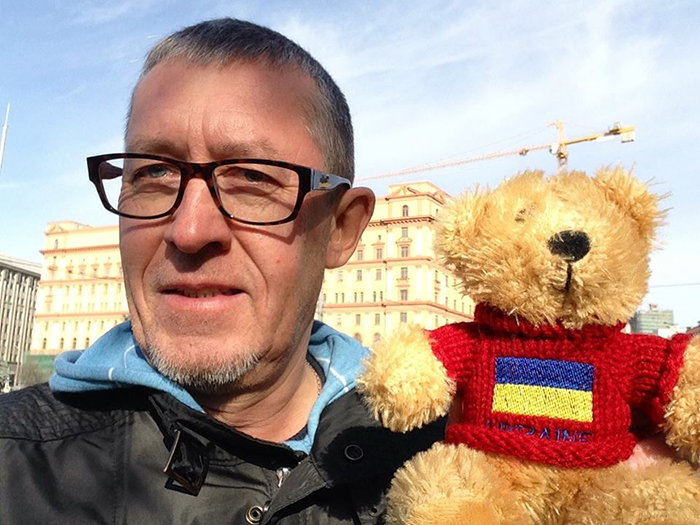
Russian journalist Alexander Shchetinin, pictured in front of the former headquarters of the KGB in Moscow with a stuffed bear.
GJ: How did you feel when you learned that Alexander was dead?
Kirillova: Alexander was someone who made the same choice as me – supporting Ukraine as a Russian journalist. Before his death, he lost most of his business, couldn’t visit his family and his adult children in Russia. He fought against Russian propaganda and agents of Russian influence in Ukraine.
I don’t believe that it was a suicide. He died a month after the murder of another Russian opposition journalist in Kiev, Pavel Sheremet. After the strange death of Alexander in Kiev, I found an article on an official Russian propaganda website which was later removed. It said that all Russian journalists who support Ukraine might be killed. My name was on the list.
GJ: What is the most difficult part of living in exile in the United States?
Kirillova: For a long time, I didn’t even have a work permit in the U.S. I was waiting for asylum [for] two years, even before the murder of Alexander. I was working for two years as a volunteer, without any payment. Now everything is fine, I have a work permit.
I lost everything because of my decision–I don’t mean the decision to come here, but the decision to start this work. But I never had illusions about this topic. [/vc_column_text][/vc_column][/vc_row][vc_row][vc_column width=”1/2″][vc_video link=”https://youtu.be/tOxGaGKy6fo”][/vc_column][vc_column width=”1/2″][vc_column_text]Index on Censorship partner Global Journalist is a website that features global press freedom and international news stories as well as a weekly radio program that airs on KBIA, mid-Missouri’s NPR affiliate, and partner stations in six other states. The website and radio show are produced jointly by professional staff and student journalists at the University of Missouri’s School of Journalism, the oldest school of journalism in the United States. [/vc_column_text][/vc_column][/vc_row][vc_row][vc_column][vc_custom_heading text=”Don’t lose your voice. Stay informed.” use_theme_fonts=”yes”][vc_separator color=”black”][vc_row_inner][vc_column_inner width=”1/2″][vc_column_text]Index on Censorship is a nonprofit that campaigns for and defends free expression worldwide. We publish work by censored writers and artists, promote debate, and monitor threats to free speech. We believe that everyone should be free to express themselves without fear of harm or persecution – no matter what their views.
Join our mailing list (or follow us on Twitter or Facebook) and we’ll send you our weekly newsletter about our activities defending free speech. We won’t share your personal information with anyone outside Index.[/vc_column_text][/vc_column_inner][vc_column_inner width=”1/2″][gravityform id=”20″ title=”false” description=”false” ajax=”false”][/vc_column_inner][/vc_row_inner][vc_separator color=”black”][/vc_column][/vc_row][vc_row][vc_column][vc_basic_grid post_type=”post” max_items=”6″ style=”load-more” items_per_page=”2″ element_width=”12″ grid_id=”vc_gid:1516813685289-3cea7194-74a5-4″ taxonomies=”22142″][/vc_column][/vc_row]
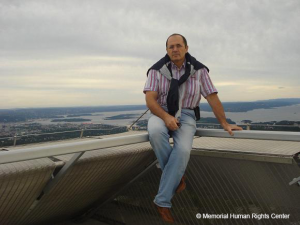
Oyub Titiev
We, members of the Civic Solidarity Platform (CSP), are deeply concerned at reports of the arrest of Oyub Titiev, head of Human Rights Center Memorial’s Grozny office in Chechnya on highly dubious narcotics charges. We call for his immediate and unconditional release and dropping of all charges.
Titiev is highly respected in the international human rights community, as well as in the North Caucasus, where he is part of a small group of brave human rights defenders still working to uncover and document grave ongoing human rights violations. Titiev has led Memorial’s work in Chechnya since the horrific murder of his colleague Natalia Estemirova in 2009. In recent years, he received numerous threats aimed at making him quit human rights work. Now, his life and safety are in jeopardy.
According to reports, Oyub Titiev was brought to the Kurchaloi district police department shortly after his car was stopped and searched near the Khymuk bridge around 10:30 am on Tuesday 9 January. Titiev’s lawyer has been informed that he is being charged with the illegal possession of drugs, reportedly a large amount (180 grams) of marijuana.
Similar trumped-up charges have previously led to several years’ imprisonment for activists and independent journalists in Chechnya. Framing people for drug crimes has become an increasingly frequent tactic used by Chechnya’s authorities to punish and discredit their critics in the eyes of Chechen society.
The Civic Solidarity Platform is a network of more than 90 human rights organizations working across the OSCE region. We consider the suggestion that a highly experienced human rights defender such as 60 year-old Oyub Titiev would travel around Chechnya with any amount of drugs in his car to be absurd, and to be evidence only of the tactics employed by Chechen authorities against principled and hard-working human rights defenders. We believe Chechen authorities are seeking to frame Titiev and close down the extremely important work of Human Rights Center Memorial in the region by means of threats and harassment.
Russia is under an obligation to respect and enable the work of human rights defenders. An important resolution in the UN General Assembly – adopted by consensus on 24 December 2017 – “Calls upon States to take concrete steps to prevent and put an end to arbitrary arrest and detention, including of human rights defenders, and in this regard strongly urges the release of persons detained or imprisoned, in violation of the obligations and commitments of States under international human rights law, for exercising their human rights and fundamental freedoms, such as the rights to freedom of expression, peaceful assembly and association, including in relation to cooperation with the United Nations or other international mechanisms in the area of human rights”.
The undersigned members of the Civic Solidarity Platform call on Chechen authorities as well as central Russian authorities to immediately release Oyub Titiev and stop his persecution as we believe that he is being punished solely in retaliation for his legitimate and peaceful human rights work. Furthermore, we call on authorities to ensure the safety of Memorial staff in Chechnya. Furthermore, we call on authorities not to hinder but to assist brave individuals such as Titiev in their work to uncover grave human rights violations in the North Caucasus region.
We call on international organizations and foreign governments to follow Titiev’s case closely and to bring our concerns to the attention of the authorities in the Russian Federation. Russia must abide by its international human rights obligations and OSCE commitments.
Signed:
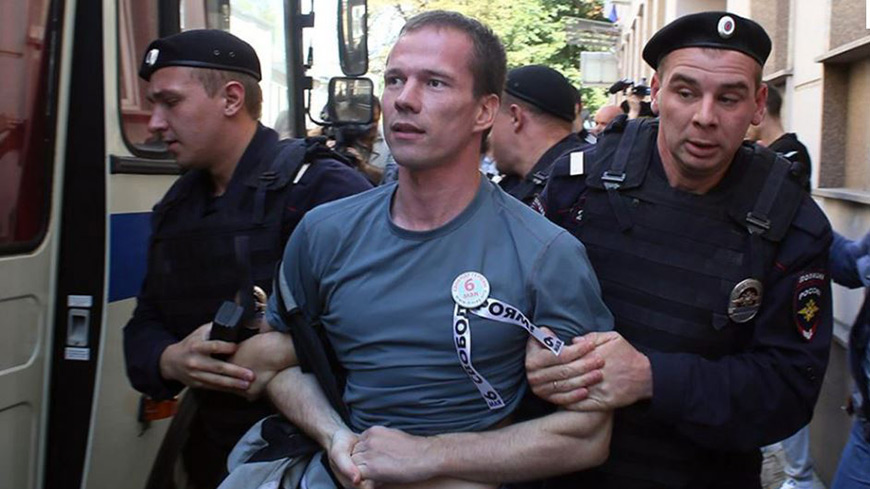
Ildar Dadin
“I can refuse to be silent. And you, friends, can refuse to be silent too. You can refuse to let these people silence me. Together, we can refuse to look away.” – Ildar Dadin, Freedom of Expression Award winner 2018
Silence is the oppressor’s friend. Jailing those who speak out against corruption and injustice – like this year’s Freedom of Expression Awards Fellow Ildar Dadin – is the favoured tool of those who seek to crush dissent. We cannot let the bullies win.
With your help, each year we are able to support writers, journalists, activists and artists at the free speech front line – wherever they are in the world – through Index Fellowships. These remarkable individuals risk their freedom, their families and even their lives to speak out against injustice, censorship and threats to free expression.
I am writing now to ask you to support the Index Fellows. Your donation provides the support and recognition these outstanding individuals need to ensure their voices are heard and their work can continue despite the enormous restrictions under which they are forced to live and work.
Your support will help award winners like Dadin, who was released from a Russian jail earlier this year and has resumed his protests against the government’s human rights abuses. Last month he was detained in St Petersburg while trying to film a woman being assaulted by police. “The situation in this country now is really bad,” Dadin says. “There’s a new kind of police force which can attack and humiliate people, which is very serious”.
Index has worked closely with Dadin to help him deal with the effects of experiencing torture whilst in prison until earlier this year and supported him to rebuild his public profile. In his words: “you gave me opportunities to use help, a psychologist, and you offered me resources and you give me this amazing opportunity to go forward… I thank you very much for this. I appreciate it.”
I hope you will consider showing your support for free speech and the Index Fellows. A gift of £500 would support professional psychological assistance for a fellow; a gift of £100 helps them travel to speak at more public events. A gift of £50 helps us to be available for them around the clock. You can make your donation online now.
Please give what you can in the fight against censorship in 2018. Make your voice heard so that others can do the same.
Thank you for your support.
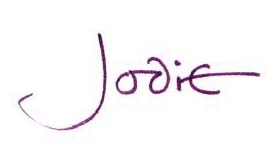
Jodie Ginsberg, CEO
P.S. The 2018 Index on Censorship awards will be held in April. To find out more about the awards fellowship including previous winners, please visit: https://www.indexoncensorship.org/fellowship
Index on Censorship is an international charity that promotes and defends the right to free expression. We publish the work of censored writers, journalists and artists, and monitor, and campaign against, censorship worldwide.